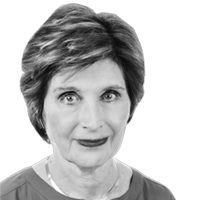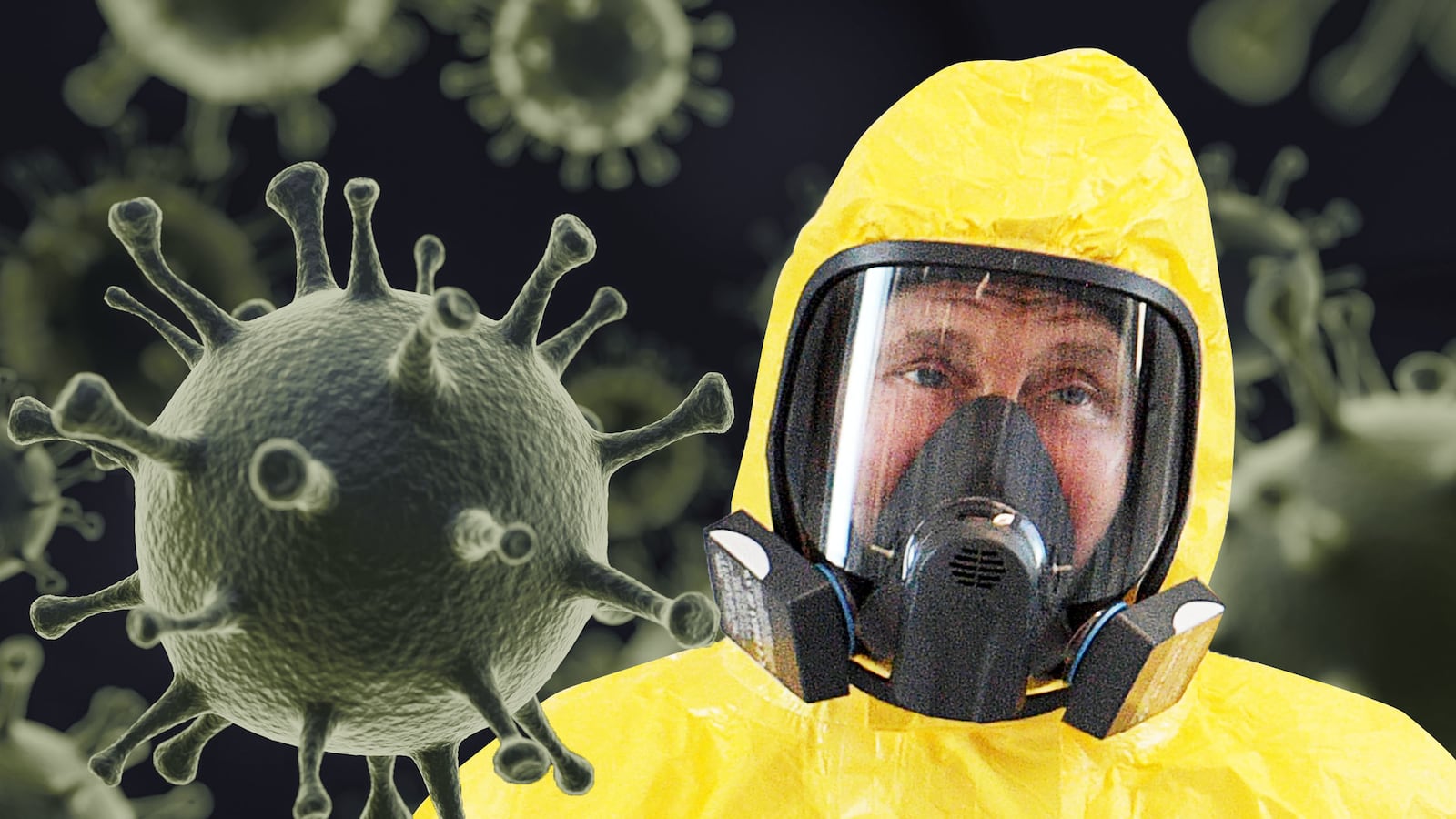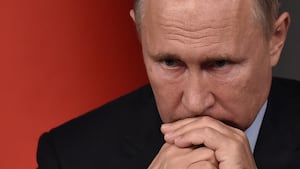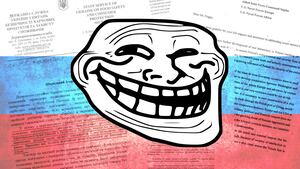When the Russian parliament approved a constitutional amendment early last month that would enable President Vladimir Putin to run for two additional six-year terms after his current one expires in 2024, the reason put forth was simple, based on the Trump-like assertion that his rule has been just about perfect.
“Putin knows much more than all of us,” declared the octogenarian parliamentarian Valentina Tereshkova, who has an aura of scientific credibility as a former cosmonaut and, in 1963, the first woman in space.
But that was five weeks ago, at a time when the Kremlin was pretending Russia might be spared the ravages of COVID-19. Since then, the April 22 referendum that Putin expected would ratify his eternal incumbency has been postponed until some time after the deadly disruptive pandemic wave subsides—and Putin doesn’t look so smart after all.
Under the best of circumstances, the nationwide vote was expected to give the Putin presidential amendment a relatively slim majority. But the shockingly inept response of Putin and his government to the rapidly spreading epidemic makes the outcome of the referendum, whenever it eventually is held, far from certain, and the damage to his reputation could even threaten Putin's hold on power.
On Monday, when the number of recorded coronavirus cases in the country reached 18,328, Putin finally admitted to senior officials “We have a lot of problems, and we don’t have much to brag about, nor reason to, and we certainly can’t relax… We are not past the peak of the epidemic, not even in Moscow.” But he continues to look to place the blame elsewhere.
A public perception of stability and competence—“knowing more than all of us”—is crucial for authoritarian regimes like Putin’s, but he has delegated responsibility for handling the crisis. He is not compensating people substantially for their economic suffering, and the terrible conditions of the health-care system are being exposed like never before.
In Putin’s first address about the crisis, on March 25, instead of a lockdown, he told his audience that the referendum had been postponed and also announced a public holiday (“a non-work week”), to last from March 28 to April 5. As a result, residents flooded Moscow’s streets in the unusually warm weather, and more than a million left the city for their dachas, thus spreading the virus. Putin then disappeared from Moscow and holed up at his estate, Novo-Ogarevo, making only occasional videotaped appearances for the next several days.
In his next address to the country, on April 2, Putin announced that he was extending the non-work period for the country until the end of the month. He also stated that, because the virus was developing differently throughout the country, “the regions themselves will make decisions that are based largely on the objective situation.”
In fact, Moscow Mayor Sergei Sobyanin, alarmed by the rapid spread of the virus, had already declared a self-isolation regime for Moscow on March 29, and regional governors across Russia had issued similar stay-at-home decrees on April 1.
In order to avoid issuing unpopular orders himself, Putin has called on the regions to deal with much of the crisis—both medical and economic. As Russian journalist Iulia Latynina observed on Echo of Moscow, “For 20 years, we were told that our country is so large that it needs a single leader—that he [Putin] is a super-duper leader who we can’t do without. And suddenly, at a critical moment, we are told ‘let the governors decide.’”
This is a marked departure from the tight controls that the Kremlin has exerted on regional governors since Putin came to power, and, as dissatisfaction with the Kremlin grows, demands for more autonomy on the part of the regions could increase. The growth of such sentiments was a powerful contributing factor to the collapse and breakup of the Soviet Union in 1991.
During a televised meeting on April 8, Putin made a bizarre reference to some obscure nomadic tribes that attacked Russia in medieval times: “Dear friends, everything passes and this will pass. Our country has repeatedly gone through serious trials: the Pechenegs tormented us and the Polovtsy. Russia dealt with everything. We will defeat this coronavirus infection. We will overcome it together.”
Russians are steeped in history, but this was such a stretch that many thought it ludicrous. The Moscow Times noted the next day that Putin’s remarks set off a meme storm of ridicule: “Some of them drew punchlines from the similarity between Pecheneg and pechen’ye, the Russian word for a cookie. Others noted the similarity between Polovtsy, the Russian name for the [Turkic nomads known as Cumans], and plov, the popular rice dish.”
Meanwhile, Russian Prime Minister Mikhail Mishustin has supported publicly the idea of a freeze on prices for food. This prompted former lawmaker Dmitry Gudov to remark, “Freezing commodity prices will only mean one thing: Food will disappear… Will you send Rosguard [the Russian National Guard] to stores with food surplus to seize cucumbers from speculators and distribute them to the population at fixed prices?”
Although Putin has grudgingly promised unemployment pay of 13,000 rubles ($175) per month, this will not extend to the millions who are self-employed or work for small and medium-size businesses. They must fend for themselves.
Former Economic Minister and Chairman of the Russian Accounts Chamber Aleksei Kudrin said in a television interview Sunday that the number of unemployed could reach eight million from its current level of 2.5 million and urged the Kremlin to adopt more aggressive measures to address the crisis. Putin has currently pledged 1.4 trillion rubles (1.3 percent of Russia’s GDP) to bolster the economy, but Kudrin, predicting that Russia’s GDP could fall by as much as 8 percent, said the amount of assistance should be at least 7 percent of GDP.
The economic disparity between the Russian elite and the rest of the population will become increasingly apparent, particularly for those 3.5 million people who subscribe to the blog of Russia’s leading opposition figure, Aleksei Navalny. He has just published a scandalous exposé, based on three years’ research, about a lavish vacation retreat that former prime minister and former stand-in president Dmitry Medvedev (now head of the United Russia party and vice president of the National Security Council) has built secretly on an island in the Volga Delta region of Astrakhan, which borders the Caspian Sea. (Medvedev is a keen fisherman.)
The complex includes a main house (18,000 square feet), a spa and swimming pool, eight guest houses, a helicopter pad, and much more. Navalny estimates its cost at $63 million. By contrast, 64 percent of Russian families live in apartments that are smaller than 650 square feet. Cooped up at home during this epidemic, the average Russian family must be finding their close quarters difficult.
The COVID-19 wave is supposed to crest in Moscow at the end of this month, with 80,000 to 100,000 confirmed cases, but some analysts suggest the infection rate may not stabilize in the capital until the first half of June. Meanwhile, the virus already has begun to hit one region after another.
The country admits to only about 21,000 confirmed cases, according to the Johns Hopkins Coronavirus Resource Center. But these figures are no doubt low because of very limited testing and widely alleged coverups. The Johns Hopkins graphic shows very few cases until the week of March 23, when Putin made his first speech about the pandemic, and then, as if the cork blew out of the information bottle, the numbers shoot upward.

Russian journalist Yevgenia Albats told me in an email: “The regions are poor, their health system—whatever existed under Soviets—ruined: No PPE, no ventilators, no doctors. Hence there will be droves of corpses, and Putin will be the one to punish regional leaders for their lack of attention to people’s needs. What a bastard, as if it was not Putin who depleted health spending in favor of military production.”
A short video, “Thank-you, Putin,” published anonymously by members of the political opposition and circulated widely on the internet, shows photographs of the incredible decay and filth inside some of Russia’s hospitals. It highlights the lack of medical supplies with commentary such as “Thank you, Putin, for making our medical infrastructure one of the most ramshackle in the world… We have a huge army, but no medical supplies” and “Thank you for postponing the lockdown and preparation for the coronavirus in the regions until the last minute.”
The Kremlin may be reluctant to introduce a nation-wide state of emergency because for Russians it has associations with totalitarian methods. There is little public trust in the government’s motives when it comes to such measures. The introduction of QR passes and other means of surveillance has caused increasing concern about the repression of individual rights.
That said, the coronavirus has not stopped the Kremlin from pursuing foreign enemies. The trial of American Paul Whelan on espionage charges began Sunday, despite appeals by his lawyer for a postponement because of the dangers of infection to Whelan, who is in poor health. After prosecutors read the indictment against Whelan at the closed-door hearing, from which U.S. Ambassador John Sullivan was excluded, the court announced a postponement until next week.
As The Daily Beast and The New York Times have reported, Putin has continued supporting the spread of conspiracy theories to discredit science in the West and undermine governments in Europe, notably Ukraine’s.
As RFE/RL analyst Matthew Luxmore observed last Friday, Russia’s annual Victory Day celebration, scheduled for May 9, was supposed to mark the grand finale to the constitutional referendum and ignite feelings of patriotism and loyalty toward the Putin leadership. And this anniversary is a big one, marking 75 years since the defeat of the Nazis in what Russians call the Great Patriotic War.
According to a Russian political scientist cited by Luxmore: “A whole lot hung on these festivities. Victory Day is a crucial element of the state’s legitimization, the nearest thing we have to an official ideology, and it was also supposed to uphold the constitutional vote.” Although no final decisions have been announced, it is likely that this huge military parade, with all its symbolic pageantry, will be postponed, thus depriving Putin of a much-needed opportunity to boost his flagging approval ratings.
According to a recent Levada poll, Putin’s ratings dropped from a high of 87 percent in July 2015 to 63 percent in March, the lowest they have been since before Russia invaded Crimea. By Western standards, these ratings are still impressive. But much of Putin’s popularity can be attributed to state-controlled television, and given the health crisis and deteriorating Russian economy, television can only do so much. At the end of February, in anticipation of the referendum, the Russian news agency TASS began releasing segments of a three-hour interview with Putin, “Twenty Questions for Vladimir Putin,” glorifying his past achievements. But the releases were suspended in March because audiences are preoccupied with the coronavirus.
Indeed, some of Putin’s supporters are getting worried about the prospects for his plan to remain president beyond 2024. A couple of days ago, the Omsk mayor’s office released a video for its citizens claiming that a vote in favor of the proposed constitutional amendments, whenever that’s possible, would help in the fight against the coronavirus. As journalist Latynina noted, “the Kremlin does not have a problem called ‘the coronavirus’; it has a problem of how to stay in power.”








